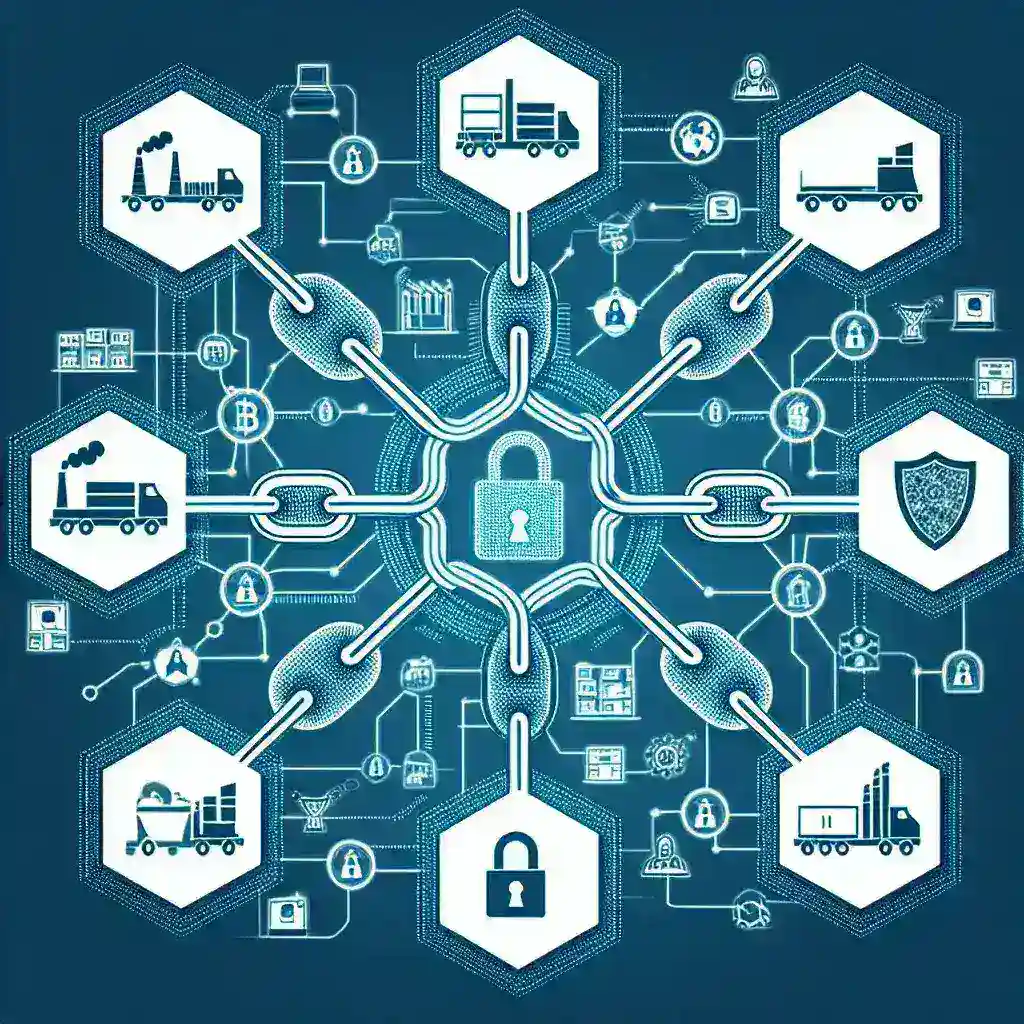Introduction
In today’s fast-paced global economy, supply chains are increasingly becoming complex and interconnected. As businesses strive for efficiency and transparency, the need for robust security measures has never been more critical. Blockchain technology emerges as a potential game-changer for securing supply chain systems, offering innovative solutions to age-old problems. This article delves into how blockchain can enhance supply chain security, its benefits, and real-world applications.
Understanding Blockchain Technology
Blockchain is a decentralized digital ledger that records transactions across multiple computers in a way that ensures the data is secure, transparent, and tamper-proof. Each transaction, or block, is linked to the previous one, forming a chain. This chain of blocks is immutable, meaning once data is recorded, it cannot be altered without the consensus of the network participants.
Key Characteristics of Blockchain:
- Decentralization: No single entity controls the entire network, reducing the chances of fraud.
- Immutability: Once a block is added, it is nearly impossible to change, ensuring data integrity.
- Transparency: All participants can view the entire chain, promoting accountability.
- Security: Cryptographic techniques secure transactions, preventing unauthorized access.
Challenges in Traditional Supply Chains
Traditional supply chains often face several challenges, including:
- Lack of Transparency: Difficulty in tracing the origin of products can lead to inefficiencies and increased risk of fraud.
- Data Silos: Different stakeholders often use separate systems, leading to fragmented information.
- Counterfeit Products: The global market is rife with counterfeit goods, posing risks to brand reputation and consumer safety.
- Increased Costs: Inefficient processes result in higher operational costs.
- Supply Chain Disruptions: Events like natural disasters or political issues can severely impact supply chains.
How Blockchain Secures Supply Chain Systems
Blockchain can address many of the challenges faced by traditional supply chains through its unique features. Here’s how:
1. Enhanced Traceability
Blockchain allows for the tracking of products from the point of origin to the final consumer. Each transaction is recorded on the blockchain, making it easier to trace the history of a product. This traceability helps in:
- Verifying the authenticity of products
- Reducing the risks of counterfeit goods
- Ensuring compliance with regulations
2. Improved Transparency
With all parties having access to the same data, blockchain eliminates the opacity present in traditional supply chains. This transparency fosters trust among stakeholders and enhances collaboration.
3. Greater Efficiency
Blockchain can automate various processes through smart contracts, which are self-executing contracts with the terms of the agreement directly written into code. This reduces the need for intermediaries and accelerates transactions, leading to cost savings.
4. Enhanced Security
Blockchain’s cryptographic nature ensures that all transactions are secure. Since data is stored in a decentralized manner, it is less vulnerable to hacking and unauthorized access.
5. Improved Accountability
Every transaction is recorded on the blockchain, which increases accountability. Stakeholders can monitor the supply chain in real-time, making it easier to identify any discrepancies or inefficiencies.
Real-World Applications of Blockchain in Supply Chains
Several companies have already begun to leverage blockchain technology to enhance supply chain security:
1. Walmart
Walmart uses blockchain to improve food safety by tracking the origin of food products. This system allows the company to pinpoint the source of contaminated food within seconds, ensuring faster recalls.
2. IBM Food Trust
IBM’s Food Trust platform connects farmers, processors, distributors, and retailers on a single blockchain network. This initiative enhances transparency in the food supply chain, helping to build trust among consumers.
3. De Beers
De Beers utilizes blockchain to track the journey of diamonds to ensure they are conflict-free. The technology helps verify the authenticity and ethical sourcing of diamonds, enhancing consumer confidence.
Future Outlook of Blockchain in Supply Chains
As blockchain technology continues to evolve, its applications in securing supply chains are likely to expand. The growing demand for sustainability and ethical sourcing will further drive the adoption of blockchain. Moreover, advancements in AI and IoT can complement blockchain efforts, leading to smarter and more resilient supply chains.
Benefits of a Blockchain-Enabled Supply Chain:
- Reduction in fraud and counterfeiting
- Lower operational costs
- Faster and cheaper transactions
- Better inventory management
- Enhanced collaboration among stakeholders
Conclusion
Blockchain technology has the potential to transform supply chain systems by enhancing security, transparency, and efficiency. While challenges remain in its widespread adoption, the benefits offered by blockchain make it an attractive solution for businesses looking to secure their supply chains. By embracing this technology, companies can not only protect their assets but also gain a competitive edge in the marketplace.

